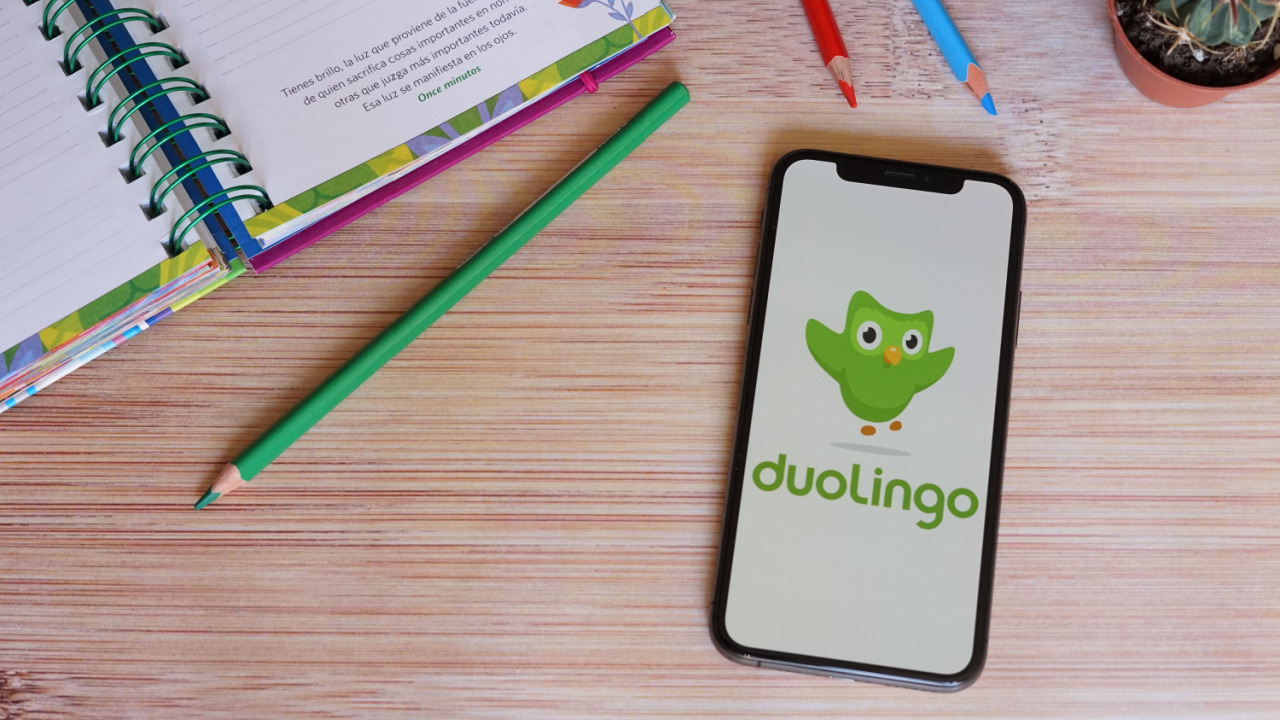The IELTS exam is one of the widely accepted English proficiency tests accepted by 12,500 organisations globally.
Table of Contents
Achieving a good band score in the IELTS exam can make a huge difference. It will help you to study in English-speaking nations such as the US, UK, Canada, and more. When you aim for a good score, it will reward you with admission to your dream university and also help you in seeking scholarship opportunities.
Besides this, you will be able to enhance your language skills while aiming for a good IELTS score. This will indeed make your stay more convenient and comfortable as language is important to exchange thoughts, ideas, and opinions in a foreign nation.
But the question is: How to get 7 Band in the IELTS Exam? This is a common question among all students.
In this blog, we will talk about the tips and tricks that can help you get a good band score.
Before that, let’s understand the pattern of the IELTS exam.
IELTS Exam Pattern
The IELTS exam assesses your ability to communicate effectively in English. There are primarily four factors that are taken into consideration when assessing your English proficiency: reading, writing, speaking, and listening. Each section is followed by a different set of questions.
This evaluation is done through a band score that ranges from 1 to 9, whereby 9 is the highest and 1 is the lowest.
Here’s the breakdown of all sections of the IELTS exam:
| Section | Description | No. of Questions | Duration |
| Reading | It consists of 3 passages of increasing difficulty, followed by questions. The text style may vary from narrative, descriptive or discursive and is sourced from magazines, newspapers and analytical texts. | 40 | 60 min |
| Writing | It consists of two tasks: Task 1: 150 words essay/ letter, which includes summarising, describing or explaining a graph, table, chart, or diagram. Task 2: 250 words words essay task | 2 | 60 min |
| Listening | It consists of 2 monologues and 2 conversions. | 40 | 30 min(plus 10 minutes to transfer answers) |
| Speaking | This section measures your spoken English skills through a face-to-face interview. | 3 | 11–14 min |
In order to achieve a good score, your IELTS preparation must be thorough. We have some personalised tips to help you prepare for each of the 4 sections of the IELTS exam.
Follow these effective learning techniques and tricks while attempting IELTS practice tests to attain a good IELTS score of 7 or higher.
How to Get 7 Band in IELTS Reading?
In this section, you will get 3 – 4 passages to read. There will be 40 questions which need to be answered based on passages of various types, such as multiple choice, True, False, Not Given, identifying the claim of a writer, matching headings, sentence completion, etc. It mainly evaluates your ability to summarise key ideas, recognising the writer’s perspective.
For the IELTS reading test, you can follow these tips to improve your band score:
- Start reading substantial sources of information such as research journals, academic and professional magazines, newspapers, books, and articles.
- Note down important points in these sources. If there are words or phrases that you don’t understand, make it a habit to google them or look them up in a dictionary.
- Select 4 significant texts and create 40 questions based on them. Then, try writing the answers within 35 – 40 minutes. This will help you improve your timing.
- Practice speed-reading in a quiet environment, and make sure to set aside dedicated time for this activity every day.
- Learn how to skim and read the text.
- Highlight important points and keywords in the text as you read them.
- Improve your vocabulary by learning new words, synonyms, and antonyms.
- Learn the common phrases and idioms used in the American, Australian, and English contexts.
- Know the types of questions that are used in the IELTS reading test.
- Practice writing short answers, completing the sentences, forms, etc., in particular with correct grammar and syntax.
- Take the IELTS practice tests for reading tasks. Focus on accomplishing the tasks as directed in the task description.
Also Read: IELTS General Reading

Excel in IELTS with India’s Top Online Coaching
Leap has helped more than 1 Lakh students achieve 7+ IELTS band.
How to Get 7 Band in IELTS Writing?
In this section, you will be given 2 tasks to complete. The task differs for both Academic and General Training tests.
Academic writing test:
- The first task is to analyse a pictogram and write an essay of 150 words while following the directives in the task description.
- The second task is to write an essay of 250 words based on your opinion on the subject provided in the task description of writing task 2.
General Writing Test:
- The first task is to write an informal or formal letter of 150 words as directed in the task description.
- The second task is to write an essay of 250 words based on the topic provided in the description of writing task 2.
Remember that in this section, the examiner will assess your writing skills based on four key criteria: Task Achievement (fulfilling the task’s requirements), Coherence and Cohesion (logical organisation and flow of ideas), Lexical Resource (vocabulary range and use), and Grammatical Range and Accuracy (grammar variety and correctness).
For the IELTS writing section, you can follow these tips to improve your band score:
- Learn the rules of grammar.
- Practice using the 8 parts of speech, namely, nouns, pronouns, adverbs, verbs, adjectives, conjunctions, prepositions, and interjections, correctly in your sentences.
- Practice expressing strong opinions with clarity.
- Write your essays and letters to the point. Don’t beat around the bush.
- Improve your vocabulary by constantly learning new words. Then, incorporate these words in everyday conversations to practise using them in the correct context.
- Improve your speed of writing.
- If you are taking the IELTS Academic test, practice examining graphs, tables, and diagrams. Then, write small essays of 150 words, each describing your understanding of the pictogram. Try to finish the entire process of analysing the pictogram and writing the essay within 15 – 18 minutes.
- If you are taking the IELTS General Test, practice writing formal and informal letters on various subjects. The letters must be 150 words in length and they must follow the updated formats of letter-writing.
- For both IELTS Academic and IELTS General Tests, practice writing essays of 250 words on academic and general topics. Practice finishing the task within 35 – 37 minutes.
- Take multiple IELTS writing practice tests to get accustomed to writing in a short period of time. Finish your writing tasks within 52 – 55 minutes. Then, take the remaining 5 minutes to review what you have written. Check for errors in grammar or syntax.
Also Read: IELTS Writing Samples 2024: Task 1 & Task 2 (Sample Questions & Tips)

Excel in IELTS with India’s Top Online Coaching
Leap has helped more than 1 Lakh students achieve 7+ IELTS band.
How to Get 7 Band in IELTS Listening?
In this section, the examiner will assess your ability to understand different accents, extract specific information, comprehend main ideas, and follow complex arguments. The focus is on accuracy in understanding and transferring information correctly from the audio to the answer sheet.
During the test, the examiner will play 4 recordings.
- The first recording is a conversation between 2 native English speakers on an everyday subject.
- The second recording is a speech based on a general topic.
- The third recording is a conversation among 3 – 4 native English speakers discussing an academic or professional topic with facts.
- The fourth recording is a monologue about an academic or professional topic.
For the IELTS listening test, you can follow these simple tips to help you achieve a good band score:
- Learn to follow conversations and speeches by native English speakers of different ethnicities. The American, English, Irish, and Australian accents differ based on their stress on vowels and consonants. Get accustomed to listening to them and comprehending them easily.
- Watch English and American shows, movies, and educational content with subtitles.
- Once you are accustomed to following the accents with ease, turn off the subtitles and switch to watching Ted talks, seminars, and news channels.
- Listen to English podcasts and newsletters.
- Note down the important points that are discussed in these sources of information.
- Get used to common jargon, idioms, and phrases.
- If you are about to take the IELTS computer-based test, then practise typing important points and answering questions while you listen to the context. This is because, unlike the IELTS paper-based test, the computer-based test is only 30 minutes long. You have to listen to the recordings and answer the questions simultaneously, as there is no extra time allotted to finish the task.
- If you are about to take the IELTS paper-based test , practice writing long summary answers and sentence completion within 7 minutes at the most.
- During the test, you can make a note of the short answers such as match the following, multiple-choice, true and false, etc., on your question set.
- You will then have 10 minutes to transfer these answers to the separate answer sheet.
- Complete the summary answers and sentence completions within 7 minutes
- Use the 3 remaining minutes to transfer the one-word answers in the correct sequence to the answer sheet.
Also Read: IELTS Listening Computer Based Practice Tests: 2022 Online Delivered Test
Explore all countries
How to Get 7 Band in IELTS Speaking?
The IELTS speaking test assesses your ability to communicate effectively, express ideas and opinions, and justify your arguments. It is evaluated on the basis of 4 key parameters: fluency and coherence, lexical resource, grammatical range and accuracy, and pronunciation.
The test consists of 3 sections:
- During the first section of the IELTS speaking test, the examiner will ask you to talk about general topics such as work or family. This exercise is meant to help you relax for the duration of the exam.
- During the second section of the IELTS speaking test, the examiner will give you a topic to talk about for 4 minutes. These topics are different for the Academic and General Tests:
- For the Academic test, you will be given a topic with a professional or academic context. You will have 1 minute to think about the points that you would like to discuss. Then you must speak about it for 3 – 4 minutes.
- For the General test, the topics are usually based on everyday phenomena such as travel, politics, general awareness, etc. You must express your opinion on the subject clearly.
- During the third section of the IELTS speaking test, the examiner will ask you several questions regarding your opinion on the topic that was provided. This exercise is designed to evaluate how you would interact in a classroom or office scenario where there are several people expressing their views on a subject or sharing ideas.
For the IELTS speaking test, you need to pay attention to the following points in order to get a good band score:
- Practice speaking with confidence. Join some speaking clubs for the IELTS practice test for speaking tasks.
- Avoid using filler words such as ‘like,’ ‘umm,’ ‘you know,’ etc.
- Reduce unnecessary pauses and hesitations to a minimum.
- Stand in front of a mirror and choose a topic. Then, observe yourself in the mirror to evaluate your skills.
- During the test, take 1-minute preparation time to think about the points you would like to mention during your speech.
- Use examples and factual information to support your opinions. You can also cite personal experiences.
- Do not use any colloquial terms during the IELTS speaking test.
- Display a good sense of vocabulary and grammar.
- Keep the entire conversation light-hearted. Don’t turn it into an argument to prove your point.
- Stay true to the directions of the tasks. Answer the questions only as directed, as task accomplishment plays an important role in your score.
Let’s understand the meaning of a good band score.
Also Read: Idioms for IELTS Speaking Test 2024
What is a Good IELTS Score, and What Does it Mean?
The IELTS score is influenced by the 4 sections of the test:
- Reading skills
- Writing skills
- Speaking skills
- Listening skills
The combined score is then represented on a scale of 1-9 which is referred to as the Band Score. Generally, a score of 7 is considered a good IELTS score.
The table below expresses each score and the skill level it indicates:
| Band Score | Skill Level | What It Indicates |
| 9 | Expert user | Has a complete and thorough understanding of the language and all its components. |
| 8 | Very good user | Has a thorough understanding of the language and its complexities. Possibilities or minimum errors. |
| 7 | Good user | Has a functional understanding of the language and can communicate effortlessly. May experience some misunderstandings and inaccuracies. |
| 6 | Competent user | Is capable of communicating with a little effort, especially in familiar situations. |
| 5 | Modest user | Has a moderate understanding of the language. Makes several mistakes in communicating and understanding. |
| 4 | Limited user | Is unable to use complex forms of the language, especially in unfamiliar situations. Experiences problems in expressing themselves in writing or speaking. |
| 3 | Extremely limited user | Can only comprehend familiar situations. Experiences frequent interruptions while speaking and understanding the language. |
| 2 | Intermittent user | Experiences extreme difficulty in using the English language for speaking and writing |
| 1 | Non-user | No knowledge of the language except for a few commonly used words. |
| 0 | Test not attempted | The test taker has not provided any information for assessment. |
You may also achieve a score with a .5, i.e., 6.5, 7.5, and so on. This means that your skill level is categorised between the two levels of the higher and lower limit.
For instance, if you score a 7.5. It indicates that you may not make mistakes while attempting 4 sections of the IELTS exam. However, you may have some difficulty in unfamiliar situations.
Now, as we are familiar with tips and tricks on how to achieve a 7 band in each section of the IELTS exam. So, let’s understand how we can get a 7+ Band in the IELTS exam.
How to Achieve a 7+ Band Score in IELTS Exam?
In order to achieve a good score, your IELTS preparation must be thorough. Take the following steps to increase your test scores:
- Learn the basics of grammar.
- Practise the different parts of speech.
- Learn at least 5 useful words every day.
- Read study guides, newspapers, and books out loud to improve your reading skills.
- Write essays, small reviews of books, entertainment, etc., to improve your writing skills.
- Listen to English podcasts and watch some educational programs to improve your listening skills.
- Speak in English as much as possible.
- Join some IELTS preparation training programs and follow IELTS-related blogs.
- If you do not understand a word or phrase, make it a habit to look it up.
- Take as many mock tests as possible.
How Leap Scholar Can Help Achieve a High Score with their IELTS Class?
Leap Scholar is dedicated to providing an end-to-end service to help you with your IELTS preparation. Their program is designed to help anyone from novice to expert.
Leap Scholar will assign a mentor to help you refine your skills and advise you efficiently. Their IELTS preparation classes provide a thorough knowledge of the subject matter. They also focus on tips and tricks that you can use to learn faster and more effectively.
Speak to their expert advisors about your requirements for studying or immigration. Your personalised mentor and counsellor will guide you through every step of the way to a brighter future.
How to Check the Result?
To check your results, you can log in to your IELTS account. You will need your registration ID, password, passport ID, and the date of your test.
The results are available online for 28 days.
You will also receive a physical copy of the results by mail. It will arrive within 10 days for a paper-based test and 5-7 days for an online test. The physical copies are dispersed after the announcement of the results. Therefore, once the result is declared on the 13th day, the physical copy will be received in the next 10 days.
How to Report IELTS Scores to Universities?
If you meet the university eligibility criteria, you can share your IELTS score results with them directly, either as an electronic copy or a paper-based Test Report Form (TRF). You can sign up for the TRF during your IELTS registration or apply for it after you view your test scores.
If you apply during registration, then there is a good chance that the university may receive the results before you even see them. This can cause problems if you do not meet the eligibility criteria.
Therefore, it is advised to apply for a test result form after you have acknowledged your results. You must enter the university address along with a valid P.O. box number for paper-based TRF.
You can pay the council for the IELTS examination via Demand Draft or online payment. The results will then be sent to the respective universities.
Conclusion
The IELTS examination is an English proficiency test that is conducted to ensure your eligibility to migrate to an English-speaking country. This test is vital if you want to study or work there.
The intention behind the test is to make sure that you feel comfortable and blend in well with the locals. The test is designed to evaluate your reading, writing, listening, and speaking skills.
The only way to get a good score is with a strong IELTS preparation and doing more IELTS practice tests.
You can join an IELTS training program with Leap Scholar and get personalised guidance to help you achieve the 7 band score.
Frequently Asked Questions
-
Q. For how long is the IELTS score valid?
The IELTS score is valid for 2 years. During this time, you can apply to colleges or jobs. You will be required to submit the test results in order to be eligible. The eligibility may vary from one university to another.
-
Is 7.5 a good IELTS score?
Yes, a score of 7.5 is considered a good IELTS score. It indicates that the user is familiar with the language and its complexities. They might make a few errors but with a thorough IELTS preparation, you can avoid the mistakes.
-
Is the IELTS score valid in the USA?
Ans. Yes, the IELTS score is valid and accepted in the USA. You can submit the IELTS score while applying for higher education or during job applications. Remember that your IELTS score is valid for only 2 years, so you should submit as early as possible.
-
How to start IELTS preparation at home?
To start your IELTS preparation at home, you can follow the steps below:
-Acquire the study materials from online sources or purchase IELTS preparation books.
-Practice writing essays.
-Practice reading as much as possible.
-Listen to podcasts and watch educational programs in English.
-Look up words and phrases that you don’t understand.
-Learn 5-7 new words daily.
-Practice speaking in English as much as you can.
-Join online discussion groups to stay up-to-date on current exam tips. -
Q. What is the average IELTS score in India?
Ans. The average IELTS score in India typically ranges between 5.5 and 6.5. This score may vary depending on the individual’s proficiency in English and the module they are taking (Academic or General Training). It’s important to note that different institutions may require higher scores for admission or visa purposes.
-
Q. Which Countries Accept IELTS Scores?
Ans. More than 140 countries across the world accept the IELTS score. The top countries that require an IELTS score are:
-USA
-UK
-Australia
-Canada
-New Zealand
-Ireland -
Q. When does the IELTS Result Come Out?
Ans. The IELTS results are released within 2 weeks of taking the test.
-In the case of an online test, the results are available within 3-5 days.
-In case of an offline test, the results are available on the 13th day at noon. The pen-and-paper format takes more time to evaluate. Therefore, the time taken to get the results is a little longer. -
Q. What is the most important thing to focus on to get a 7+ Band in IELTS?
Ans. The most important thing to focus on in order to get a 7+ Band in the IELTS exam is vocabulary, which is crucial for all 4 sections. Focus on improving vocabulary, practice with sample questions, and take mock tests. This can help you to expand your vocabulary to better understand and respond to questions.
-
Q. How can I overcome my fear of speaking in English during the IELTS exam?
Ans. You can overcome your fear of speaking in English by practising regularly, focusing on fluency and pronunciation, and building confidence. Remember that the examiner wants you to succeed. So, you should practise with a partner or tutor, record yourself, and assess your progress.
-
Q. Can I prepare for IELTS in 1 month?
Ans. Yes, you can prepare for IELTS in 1 month. For this, you need to take a strategic approach by creating a study plan, practising regularly, and taking mock tests. Also, you should focus on your weaknesses, practice under timed conditions, and stay motivated. Use online resources and seek guidance from a tutor if needed.
-
Q. How important is grammar in the IELTS exam?
Ans. Grammar is crucial in all four sections of the IELTS exam. You should practise grammar rules, sentence structures, and verb tenses to improve your skills. Focus on common grammar mistakes and practice using grammar in context. Use online resources and practice with sample questions.















Have Questions? Get Guidance to reach your Dream University
Connect with India's finest counsellors and biggest study abroad community.
Get Guidance